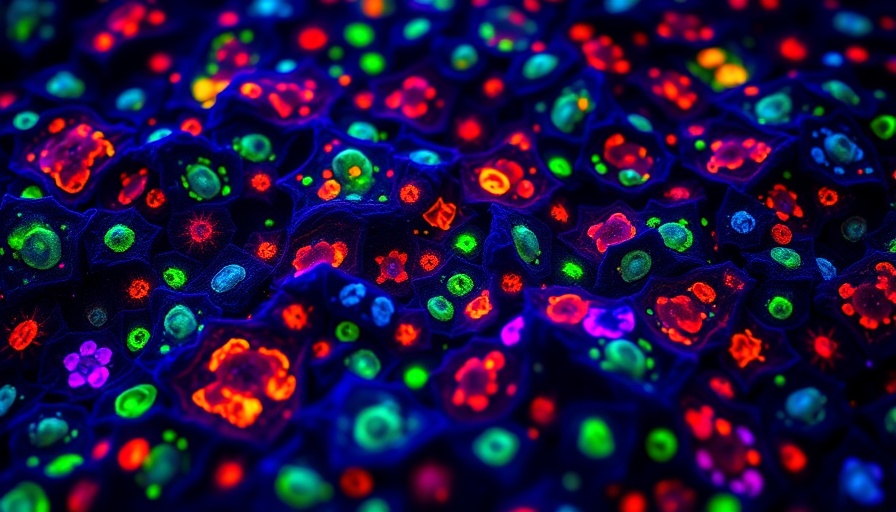
The Revolutionary Ideas of Diego Bohórquez
Diego Bohórquez has embarked on a groundbreaking journey in understanding how the brain and gut communicate. A research associate professor at Duke University, Bohórquez has defined a new mechanism for synaptic communication through the discovery of 'neuropods,' a particular kind of enteroendocrine cell that challenges centuries-old assumptions about gut-brain signaling.
A Bold Leap into Molecular Biology
Historically, scientific narratives have often depicted the connection between the brain and the gut through a simplistic lens, primarily focused on hormonal signals. Bohórquez's work, however, illustrates a novel 'glutamatergic signaling' mechanism, whereby these neuropods permit rapid communication akin to a 'double set of electrical wires.' This new perspective has been acknowledged as a "paradigm shift" in neuroscience, urging the scientific community to rethink the interaction between gut signals and brain responses.
The Origin of a Pioneer's Journey
Hailing from El Chaco, Ecuador, Bohórquez's early life was marked by interaction with nature and animals, elements that instilled curiosity in him from a young age. His journey took him from the Amazon rainforest to prestigious institutions, where he mingled practical learning with academic pursuits. It is no wonder that he refers to an 1853 book “Memoirs of a Stomach,” connecting his scientific inquiries with literary references that highlight the rich history of our understanding of digestion and communication.
Implications for Understanding Human Health
Bohórquez's work has transformative implications for health and diet, especially when it comes to how decision-making about food is influenced by gut signals. Understanding the nature of these neuropods opens doors to innovative approaches in treating gastrointestinal disorders, obesity, and even mental health conditions. As neurobiological research continues to evolve, identifying these new pathways may guide personalized medical approaches that consider the intricate dance between our gut and our brain.
Challenges and Opportunities in Neurobiology
Despite the exciting developments, the road ahead is not free from challenges. Critics often demand more concrete evidence before embracing such drastic shifts in scientific understanding. As Ivan de Araujo from the Max Planck Institute for Biological Cybernetics suggests, presenting 'new ideas' faces inherent skepticism. This is a reality every innovative researcher must navigate, using results and findings to bolster credibility in a field resistant to change.
Looking to the Future: What Lies Ahead?
The future of gut-brain research is on the brink of a revolution thanks to insights like those from Bohórquez. Ongoing studies may uncover further complexities in this vital connection, transforming not just academic understanding but practical applications in wellness and human healthcare. The implications range from better treatment options to deeper insights into how our diet impacts mental health.
Value of Knowledge in Today’s World
For anyone interested in the intersection of health, science, and education, understanding the research performed by dedicated neuroscientists like Bohórquez is crucial. It emphasizes the importance of questioning established narratives and the potential for transformative discoveries that can affect individual well-being.
 Add Row
Add Row 

 Add
Add 


Write A Comment